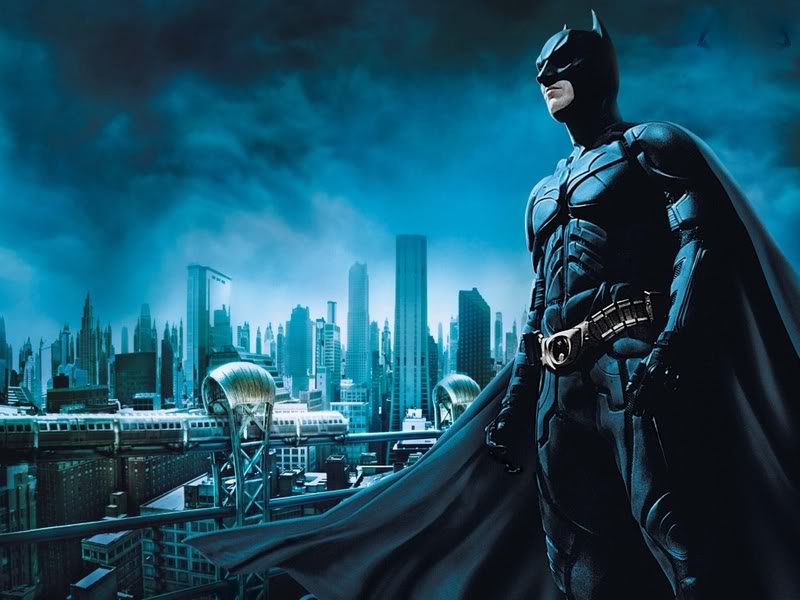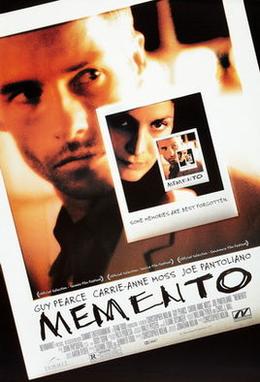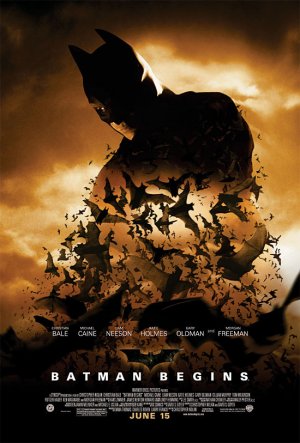Why The Dark Knight has invigorated the Super-hero Genre.
The Dark Knight (2008) took approximately One Billion Dollars in the world-wide box office, became a critical smash and every die-hard fan of Batman did not get disappointed (as they usually do with comic-book blockbusters). The questions bustling on everyone’s mind was ‘How did this happen?’

The Dark Knight is the sequel to 2005’s Batman Begins which was a reboot of the original Batman series. Both movies were co-written and directed by Christopher Nolan, a British director’s whose only notable film beforehand was Memento, a film which turned standard linear narrative on its head by making the entire film backwards. When he was announced to direct Batman Begins there was a general tone of confusion.
Surely the film studios would choose to elect someone who had a history with directing blockbusters and fight-scenes rather than choosing an independent film-maker famous for putting narrative above all else? Well, that was the whole reason why they chose him.
The last Batman film (Batman and Robin [1997]) was a critical and box office bomb; the general tone of the movie seemed to be self-mocking, which did not warm audience’s hearts, as with Arnold Schwarzenegger’s infamous antagonist Mr Freeze. Many a Fan-boy (a term created for the purpose of mocking extreme fans of comic-books who were mainly teenagers) were outraged with the way a beloved character of the Batman series was treated. Mr Freeze’s original frightening, dark tone was scrapped in favour of a character who mostly spoke in puns relating to the cold.
“Ice to see you” and many other phrases are, to this day, quoted with mockery and jest to this seemingly disappointing film.
In an attempt to reboot the initially successful Batman series, studio executives were adamant to make Batman Begins a dark, gritty story rather than the jovial, self-parodying tone of the last movie. That’s where Christopher Nolan came in. Nolan’s most famous film Memento (2000) shocked everyone with its primarily confounding subject, a man who has no short-term memory. This noir-esque film propelled him into getting offered to reboot the Batman series with realism and dark overtones. Batman Begins was a smash hit gaining almost triple the amount of its budget and critical success. It was a good super-hero film, but nothing compared to the majesty of The Dark Knight.
Batman Begins ends on a tease for a sequel of the movie, showing a Joker card sent by the very popular character The Joker. The reaction from the public was un-rivalled. Production of The Dark Knight started almost immediately, with Christopher Nolan hired again to co-write and direct. Three years passed and through clever marketing schemes involving not showing what The Joker would look like and keeping the entire plot secret created a world of pre-emptive buzz for the film. On its opening night The Dark Knight received an estimated 60 million dollars which was almost unheard of at the time. It grossed over 110 million dollars on the opening weekend and eventually took in a billion dollars worldwide. The success of Batman Begins had multiplied. What really struck everyone who watched The Dark Knight was how different it was to other Super-hero films, and indeed its predecessor, Batman Begins. Gone were the clichés of any kind of origin story, the ridiculous outfits and A-to-B plot were shunned, and any attempt of self-mocking had vanished. Batman had achieved what no Super-hero movie had done before; it had invested itself in realism. The audiences lapped it up, and so did critics, managing to get on the list of almost every top 10 films list of that year and managing to get awards at even the most prestigious film events.
But how did this film about a man who dresses up in a Bat costume without a hint of humour or irony achieve this status? The film’s quality must’ve been flawless.
And it was. The Dark Knight’s plot involves a psychotic mastermind trying to cause mayhem all over Gotham city. Batman, a local hero, sets himself to defeat and capture this madman. The joker (the villain) involves himself with the local mob to hire henchmen and to acquire money for his ridiculous schemes. A number of challenging situations concerning morality and priority are set up for Batman to complete. Standout scenes show The Joker questioning Batman about morals and reasoning. There is a thick subtext thrown over this cat-and-mouse movie. Is there bad without good? Can people contradict themselves when it comes to morals and beliefs? Is there truly good or evil? Questions of morality and beliefs are all created by a madman who represents evil. Of course there are biblical allusions, but any movie can have them as long as they are interpreted that way, but the allusions seem fairly obvious, one prime example is when the Joker constantly tempting Batman by questioning his actions and beliefs behind them clearly allude to Jesus being questioned by the devil in the desert; the fact that an allusion of that calibre is being used in a super-hero movie where a man who dresses up in tights to fight bank-robbers is just dumbfounding. This Superhero movie options the audience to question themselves about their beliefs and what they truly stand for, while creating a thrilling ‘baddie’ vs ‘goodie’ story.
No Superhero movie has even come close to creating some sort of philosophical debate after watching the movie. Some superhero movies have tried (X-men, X-men 2, Spider-man 2) but all of them make the subtext very clear and it seeps into the actual theme of the movie itself. For instance in X-men 2 it deals with a form of discrimination towards difference in people’s appearances. While that is a blatant metaphor for racism and how racism itself is a form of bullying and violence, the movie never lets itself truly explore that notion, it would rather show what would happen if each of us had powers and if we battled each other. It was a good movie, and a great superhero movie at that, but no-where near as thought-provoking as The Dark Knight.
Were the philosophical debates of The Dark Knight the whole reason why it was critically successful? Not at all, it was a realistic thriller that involved the audience by showing this crazy, frightening city’s decent into chaos caused by an evil maniac. It made the audience sympathise and emotionally invest in this cold, near-emotionless hero who wanted justice and peace in this startled city. But having a philosophical undertone carried the films sincerity, and created the entire notion of this film being believable.
The superhero genre in movies would be changed forever now. Constant references to The Dark Knight plagued every review of a superhero movie post 2008. While those comparisons were sometimes apt, it almost felt gratuitous in the amount of times it was mentioned. Even Superhero films that were created in a completely different style and tone to The Dark Knight would get the vaguest of unjustified comparisons. This meant only one thing. The Dark Knight had shown people what they had never seen before in a genre used only to escape the gritty realistic world to a fantastical world; and yet The Dark Knight spun that on its head. No other Superhero movie has attempted to go even near what The Dark Knight achieved and are happy in doing so, going their escapist fantasy way; but there is a sequel to The Dark Knight, and it seems to be as ambitious as the last. Will it repeat success? Or will it make people sick of what this originally ridiculous character is trying to be? Only time will tell, but Christopher Nolan is co-writing and directing the sequel, so since he is loved universally for his original take on everything he does (doing films such as The Prestige, and Inception in between each entry in The Dark Knight trilogy) the internet have coined a catchphrase to describe how to deal with any lack of faith in his choices.
In Nolan we Trust.

Such universal praise for one artist is unthinkable. And to think it started all because he thought a bloke in tights should be taken seriously.
The Dark Knight (2008) took approximately One Billion Dollars in the world-wide box office, became a critical smash and every die-hard fan of Batman did not get disappointed (as they usually do with comic-book blockbusters). The questions bustling on everyone’s mind was ‘How did this happen?’

The Dark Knight is the sequel to 2005’s Batman Begins which was a reboot of the original Batman series. Both movies were co-written and directed by Christopher Nolan, a British director’s whose only notable film beforehand was Memento, a film which turned standard linear narrative on its head by making the entire film backwards. When he was announced to direct Batman Begins there was a general tone of confusion.
Surely the film studios would choose to elect someone who had a history with directing blockbusters and fight-scenes rather than choosing an independent film-maker famous for putting narrative above all else? Well, that was the whole reason why they chose him.
The last Batman film (Batman and Robin [1997]) was a critical and box office bomb; the general tone of the movie seemed to be self-mocking, which did not warm audience’s hearts, as with Arnold Schwarzenegger’s infamous antagonist Mr Freeze. Many a Fan-boy (a term created for the purpose of mocking extreme fans of comic-books who were mainly teenagers) were outraged with the way a beloved character of the Batman series was treated. Mr Freeze’s original frightening, dark tone was scrapped in favour of a character who mostly spoke in puns relating to the cold.
“Ice to see you” and many other phrases are, to this day, quoted with mockery and jest to this seemingly disappointing film.
In an attempt to reboot the initially successful Batman series, studio executives were adamant to make Batman Begins a dark, gritty story rather than the jovial, self-parodying tone of the last movie. That’s where Christopher Nolan came in. Nolan’s most famous film Memento (2000) shocked everyone with its primarily confounding subject, a man who has no short-term memory. This noir-esque film propelled him into getting offered to reboot the Batman series with realism and dark overtones. Batman Begins was a smash hit gaining almost triple the amount of its budget and critical success. It was a good super-hero film, but nothing compared to the majesty of The Dark Knight.
Batman Begins ends on a tease for a sequel of the movie, showing a Joker card sent by the very popular character The Joker. The reaction from the public was un-rivalled. Production of The Dark Knight started almost immediately, with Christopher Nolan hired again to co-write and direct. Three years passed and through clever marketing schemes involving not showing what The Joker would look like and keeping the entire plot secret created a world of pre-emptive buzz for the film. On its opening night The Dark Knight received an estimated 60 million dollars which was almost unheard of at the time. It grossed over 110 million dollars on the opening weekend and eventually took in a billion dollars worldwide. The success of Batman Begins had multiplied. What really struck everyone who watched The Dark Knight was how different it was to other Super-hero films, and indeed its predecessor, Batman Begins. Gone were the clichés of any kind of origin story, the ridiculous outfits and A-to-B plot were shunned, and any attempt of self-mocking had vanished. Batman had achieved what no Super-hero movie had done before; it had invested itself in realism. The audiences lapped it up, and so did critics, managing to get on the list of almost every top 10 films list of that year and managing to get awards at even the most prestigious film events.
But how did this film about a man who dresses up in a Bat costume without a hint of humour or irony achieve this status? The film’s quality must’ve been flawless.
And it was. The Dark Knight’s plot involves a psychotic mastermind trying to cause mayhem all over Gotham city. Batman, a local hero, sets himself to defeat and capture this madman. The joker (the villain) involves himself with the local mob to hire henchmen and to acquire money for his ridiculous schemes. A number of challenging situations concerning morality and priority are set up for Batman to complete. Standout scenes show The Joker questioning Batman about morals and reasoning. There is a thick subtext thrown over this cat-and-mouse movie. Is there bad without good? Can people contradict themselves when it comes to morals and beliefs? Is there truly good or evil? Questions of morality and beliefs are all created by a madman who represents evil. Of course there are biblical allusions, but any movie can have them as long as they are interpreted that way, but the allusions seem fairly obvious, one prime example is when the Joker constantly tempting Batman by questioning his actions and beliefs behind them clearly allude to Jesus being questioned by the devil in the desert; the fact that an allusion of that calibre is being used in a super-hero movie where a man who dresses up in tights to fight bank-robbers is just dumbfounding. This Superhero movie options the audience to question themselves about their beliefs and what they truly stand for, while creating a thrilling ‘baddie’ vs ‘goodie’ story.
No Superhero movie has even come close to creating some sort of philosophical debate after watching the movie. Some superhero movies have tried (X-men, X-men 2, Spider-man 2) but all of them make the subtext very clear and it seeps into the actual theme of the movie itself. For instance in X-men 2 it deals with a form of discrimination towards difference in people’s appearances. While that is a blatant metaphor for racism and how racism itself is a form of bullying and violence, the movie never lets itself truly explore that notion, it would rather show what would happen if each of us had powers and if we battled each other. It was a good movie, and a great superhero movie at that, but no-where near as thought-provoking as The Dark Knight.
Were the philosophical debates of The Dark Knight the whole reason why it was critically successful? Not at all, it was a realistic thriller that involved the audience by showing this crazy, frightening city’s decent into chaos caused by an evil maniac. It made the audience sympathise and emotionally invest in this cold, near-emotionless hero who wanted justice and peace in this startled city. But having a philosophical undertone carried the films sincerity, and created the entire notion of this film being believable.
The superhero genre in movies would be changed forever now. Constant references to The Dark Knight plagued every review of a superhero movie post 2008. While those comparisons were sometimes apt, it almost felt gratuitous in the amount of times it was mentioned. Even Superhero films that were created in a completely different style and tone to The Dark Knight would get the vaguest of unjustified comparisons. This meant only one thing. The Dark Knight had shown people what they had never seen before in a genre used only to escape the gritty realistic world to a fantastical world; and yet The Dark Knight spun that on its head. No other Superhero movie has attempted to go even near what The Dark Knight achieved and are happy in doing so, going their escapist fantasy way; but there is a sequel to The Dark Knight, and it seems to be as ambitious as the last. Will it repeat success? Or will it make people sick of what this originally ridiculous character is trying to be? Only time will tell, but Christopher Nolan is co-writing and directing the sequel, so since he is loved universally for his original take on everything he does (doing films such as The Prestige, and Inception in between each entry in The Dark Knight trilogy) the internet have coined a catchphrase to describe how to deal with any lack of faith in his choices.
In Nolan we Trust.

Such universal praise for one artist is unthinkable. And to think it started all because he thought a bloke in tights should be taken seriously.







